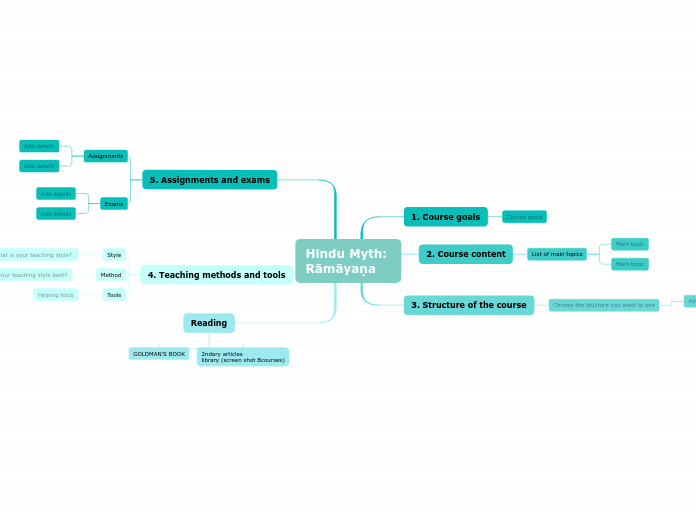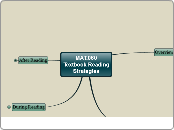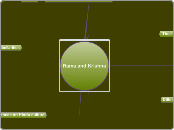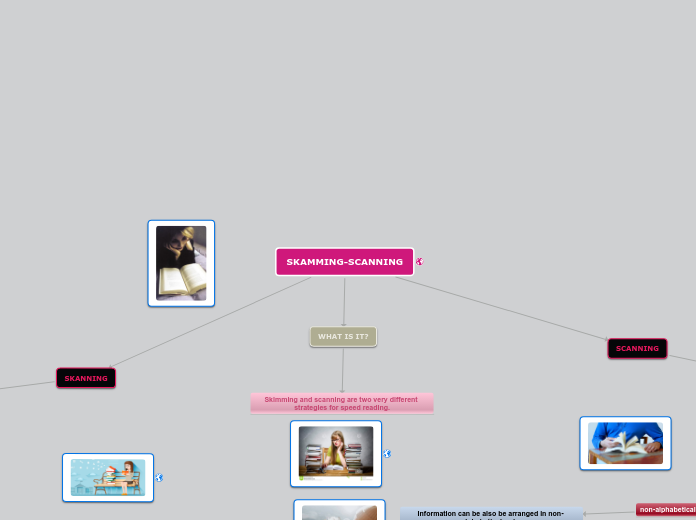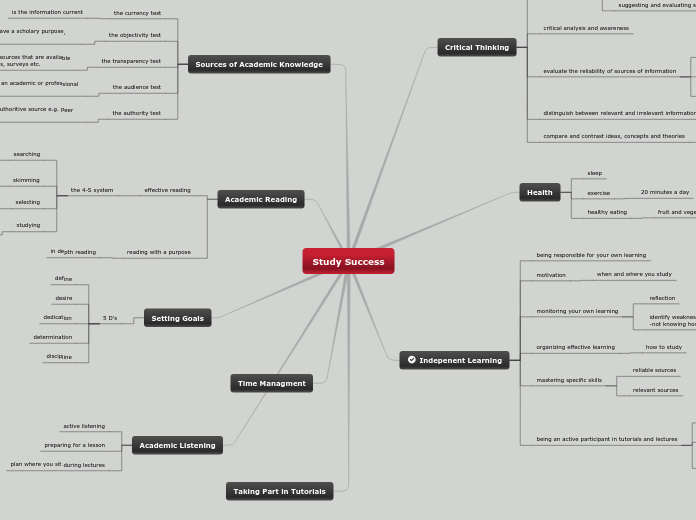Hindu Myth:
Rāmāyaṇa
Type in the title of your course.
Reading
2ndary articles
library (screen shot Bcourses)
GOLDMAN'S BOOK
4. Teaching methods and tools
Select methods and tools according to
- the size of the class
- the course goals
Tools
Helping tools
Decide whether you will use technology in your teaching or not. Look for a tool that will help you reach specific goals.
Also, consider your students' possibilities of accessing that tool.
Method
Which methods will suit your teaching style best?
Don't forget to take into consideration if these methods can help you achieve the course goal too.
Style
What is your teaching style?
How do you plan to apply your style to suit the course goals, the size of the class, and the students?
5. Assignments and exams
The evaluation must go hand-in-hand with course goals in order to achieve them and also help students to improve their skills.
Also, assignments and homework need to reflect and help achieve course goals.
Exams
These can be partial - short evaluations after each segment of the course - or final - a final exam which will assess all the knowledge aquired during the school year at once.
Assignments
Decide if you want the assignments completed during the year to represent 1/3 of the final grade.
3. Structure of the course
Arrange the topics in a logical order.
Discuss how and why you have organized the material in a particular way.
This will help students to see the connections between topics.
Choose the stucture you want to use
- Chronological - you can organize the topics according to a theme or storyline.
- Topical order - involves taking the topic of your speech and dividing it into several subtopics. The subtopics are related to the topic they branch out from.
- Survey-oriented - this type of course structure is briefly treating the main topics of a broad field of knowledge.
- A process-oriented syllabus focuses on the skills and processes involved in learning.
ChronologicalTopicalSurvey-orientedProcess-oriented
Add details
2. Course content
Select the major topics and determine the order in which you will teach them.
List of main topics
Select the main topics to be covered. To obtain an initial list of course topics, search in current textbooks or in the current literature.
Main topic
1. Course goals
Determine the goals of the course.
Having these course goals in mind will then help you make decisions about which content to include and what kind of assignments and exams are appropriate.
Consider the following questions:
- What you want your students to remember from your course?
- What skills should students gain in this course?
- How does this course relate to other courses in the discipline?
Course goals
